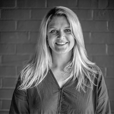MYOB Women in Tech, part four: Beyond founder Jessica Manins on giving less of a f*ck
<p>Forget the ingredients touted as necessary to make a little girl in the age-old nursery rhyme, What Are Little Boys Made Of? To be a woman business leader, you need to have more than a pinch of resilience and a dash of tenacity. This is because although the country has made big strides when it comes to inclusivity, there’s still work to do before true equality is reached. Take the recent 2019 MYOB Women In Tech Report, which found nearly half of the industry’s women leaders have personally experienced gender bias during their career, just a quarter of local technology businesses have equal representation in their leadership teams and only one in ten tech businesses work to actively address discrimination. Beyond founder Jessica Manins talks carving their career paths, overcoming personal challenges and finding grit.</p>































